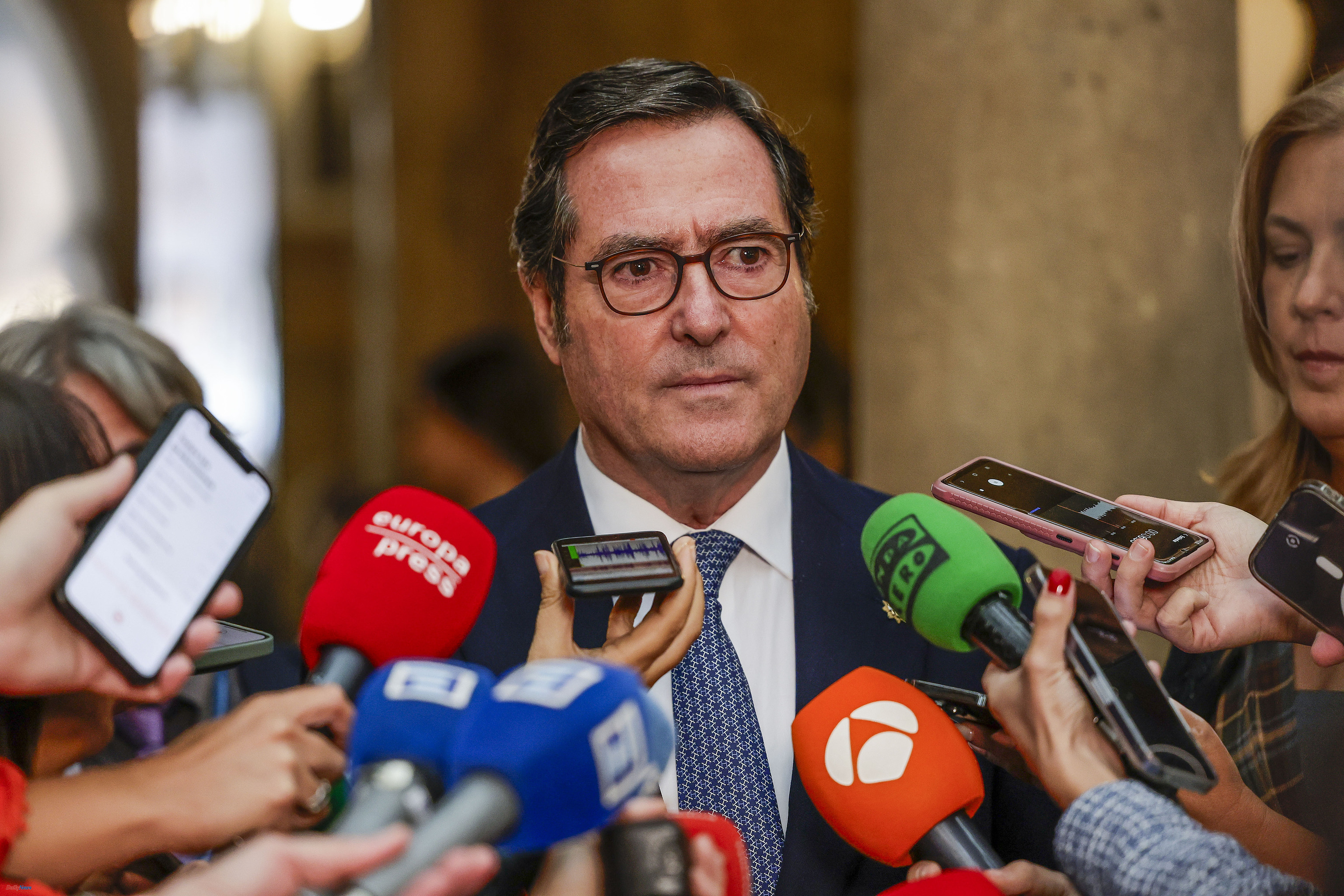The business association has decided not to support the 4% increase in the Minimum Interprofessional Wage (SMI) that the Government had proposed for 2024, nor to participate in a tripartite agreement with the unions, as EL MUNDO learned this Tuesday from several business sources.
This was decided one day after the meeting with the Ministry of Labor led by Yolanda Díaz and with the unions, which ended without progress and in which the Secretary of State for Employment, Joaquín Pérez-Rey, tried to pressure CEOE and Cepyme to enter into the agreement. The pressure strategy consisted of threatening them with "paying the consequences" if they did not support the 4% increase and warning them that, in their absence, they would agree to a greater increase only with the unions, which asked to raise the SMI between 5% and 7%.
This same morning, the president of the CEOE, Antonio Garamendi, described the Ministry's attitude as "blackmail" in a television interview, hours before holding an informal internal meeting in which the highest representatives of the companies have agreed to remain on the sidelines. of the Executive's decision. The final position has been set today, but sources close to the president of CEOE assure that after yesterday's "threats" from the Executive, at the employers' headquarters it was taken for granted what the resolution would be. "The CEOE says no to blackmail. Let them continue threatening," they point out.
From the CEOE they point out to this medium that neither the Board of Directors nor the Executive Committee - which had already taken a position at the beginning of the negotiations - met this Tuesday, but they confirm that in high-level conversations it was decided not to support the increase. of the SMI, unless the Executive changes its mind regarding its conditions.
Garamendi did not want to repeat the strategy he used in 2020. That year, after a 2019 economic slowdown, the employers chose to agree with the Government, UGT and CCOO to increase the Minimum Wage from 900 to 950 euros, with the sole objective to prevent this indicator from rising to 1,000 euros, as the unions and part of the Government intended.
The tripartite agreement served to moderate the increase, but the signing of the pact and the photograph with the members of the Government - including the then vice president Pablo Iglesias - cost Garamendi a lot of internal criticism, given that the companies did not consider that it occurred in Spain. the appropriate economic situation to approve this increase; even more so after it had gone from 735 to 900 euros in 2019 in an unusual increase of 22% in one year.
Now, the employers' association does not want to be the object of the same questioning and much less lend itself to a photo opportunity with a Government with which it has been very critical for the agreements reached for the investiture - and, especially, with the amnesty -.
Internal voices have admitted to this medium that from the first moment the CEOE expected that the Executive would not agree to the two conditions that they have requested in exchange for their support - a modification of the Deindexation Law so that public contracts can be updated in the same amount by which the SMI rises and a bonus for the social contributions of agricultural companies -, so they assumed that there would be no agreement.
The last time that the Board of Directors and the Executive Committee of the employers' association met, they already agreed that they would not agree to support an increase in the SMI if the Government did not give in under these conditions, something that has been ratified these days internally without the need for them to return to meet these decision-making bodies or convene their associates.
This Monday, the Executive confirmed to the businessmen that neither of their two requests would be attended to. Given this refusal and given that the proposed increase exceeds by one point what the employers' association had requested (they advocated a 3% increase), the decision-making bodies of the employers' association decided this Tuesday not to participate in the agreement. They do not plan to hold more internal meetings this week since the decision has been made, so they will wait for the Government to call a new meeting of the dialogue table to express their position.
Given this decision, the Executive could choose to accelerate this meeting to speed up the procedures, or it could try to convince the employers with some new argument that has not been on the table until now or by giving in to their requests, something that seems unlikely.
Although the Government wanted to approve the increase in the SMI for 2024 following a tripartite agreement with the social agents, the truth is that only it has the prerogative to decide the increase by royal decree-law, and the Workers' Statute only requires it to "consult "to the social partners their positions, without it being necessary to agree on a position. Therefore, if Labor considers that the logical thing is to increase the SMI by 4% - as it has proposed to reach the agreement - it would not be necessary for it to negotiate with the unions for a higher increase, as it intends to do.
The same Statute establishes that to raise the SMI the Executive must take into account: the consumer price index, the average national productivity achieved, the increase in the participation of labor in national income and the general economic situation.
The bilateral dialogue with UGT and CCOO will foreseeably lead to a consensual increase of between 5% and 7%, which will take the SMI from 1,080 euros in fourteen payments to 1,134 - 1,155.6 euros, which represents an increase of between 54 and 76 euros per payment.












